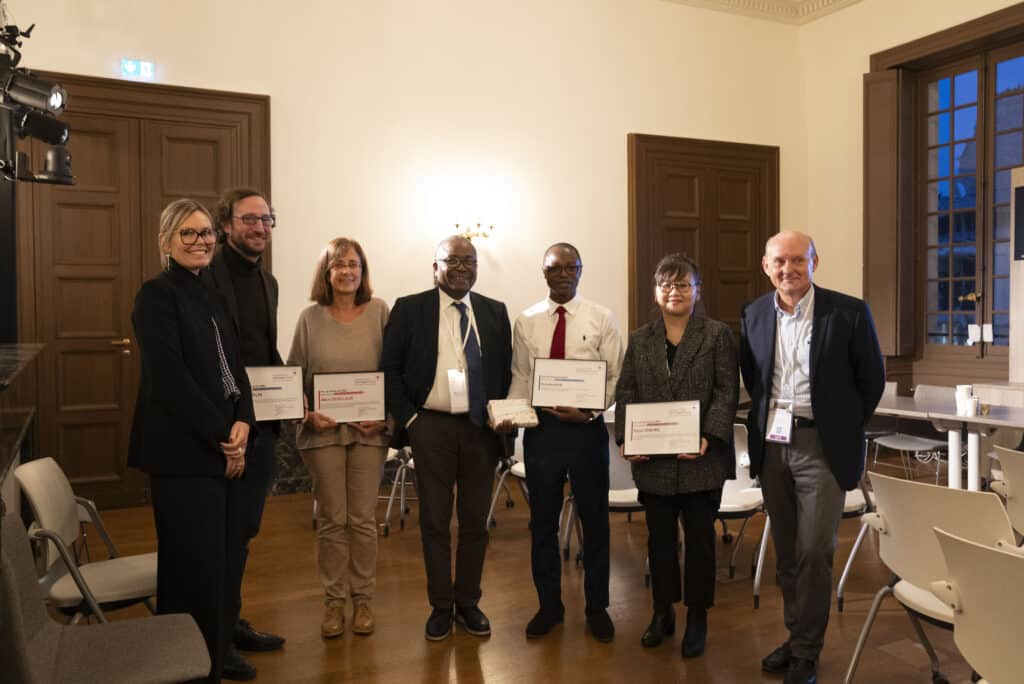During its 2023 international conference, held in the scientific lounges of Sciences Po Paris’ Campus St-Thomas, the Foundation awarded its 2023 research prizes. This year, four winners were honored. Find out more about them and view their portraits below.
Ryoa CHUNG
A prize of €3,000
Dr. Ryoa Chung is Professor of Philosophy in the Faculty of Medicine at the Université de Montréal, co-director of the “Centre de Recherche en Éthique” and Vice-President of the Canadian Philosophical Association.
She is being honoured for her research in political philosophy on the ethics of international relations, and the structural and epistemic injustices that perpetuate health inequalities and humanitarian crises.
The award was presented by Maria Gabrielsen Jumbert, geopolitologist and Director of Research at the Peace Research Institute Oslo (PRIO).
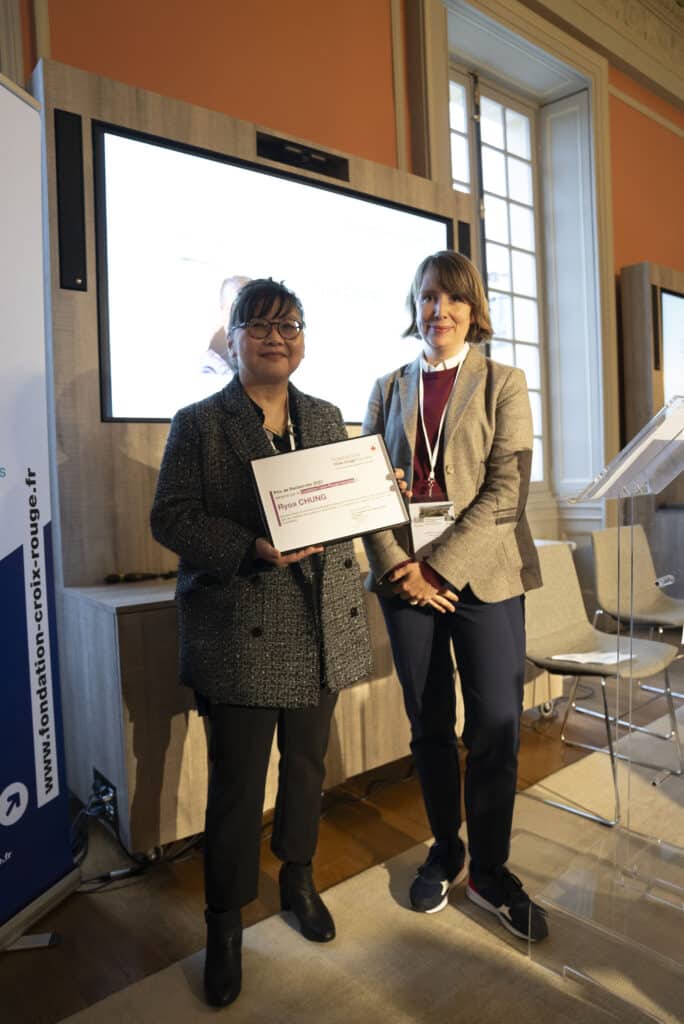
Watch Ryoa CHUNG’s video portrait
Jan VERLIN
A prize of €3,000
Jan Verlin is a lecturer in Political Science at the Université Lyon 3 Jean Moulin, Deputy Director of the “Chaire géopolitique de risque” at the Ecole Normale Supérieure, and a member of the Board of the Sciences Po “CrisisLab”.
He is being rewarded for his research, combining political science and sociology, on the complexity of the work and network of actors involved in disaster risk management and the humanitarian crises they generate.
The award was presented by Alain Daou, Doctor of International Management, Assistant Professor of Entrepreneurship at the Olayan School of Business (OSB) of the American University of Beirut (AUB), Dean of the Beirut Faculty in Cyprus and member of the Foundation’s Scientific Council.
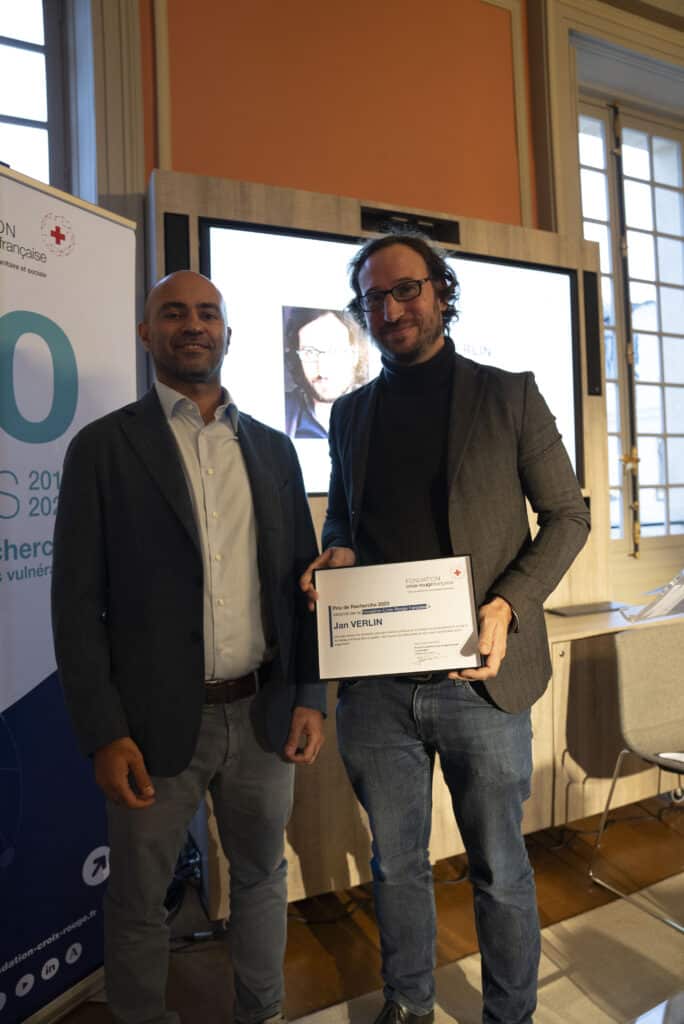
Watch Jan VERLIN’s video portrait
Firmin KRA
Prix “Avenir – Spécial 10 ans” worth €3,000
Firmin Kra holds a doctorate in socio-anthropology, is a teacher-researcher at the Université Alassane Ouattara in Boualé (Côte d’Ivoire), and a research associate at the UNESCO Chair in Bioethics (CUB) and the Laboratoire-Population-Environnement-Développement (LPED) at the Institut de recherche pour le développement (IRD).
He was rewarded for his research in health anthropology on funeral rites and response methods in epidemic contexts.
The award was presented by Malika Aït-Mohamed Parent, International Anti-Corruption Expert and member of the Foundation’s Scientific Council.
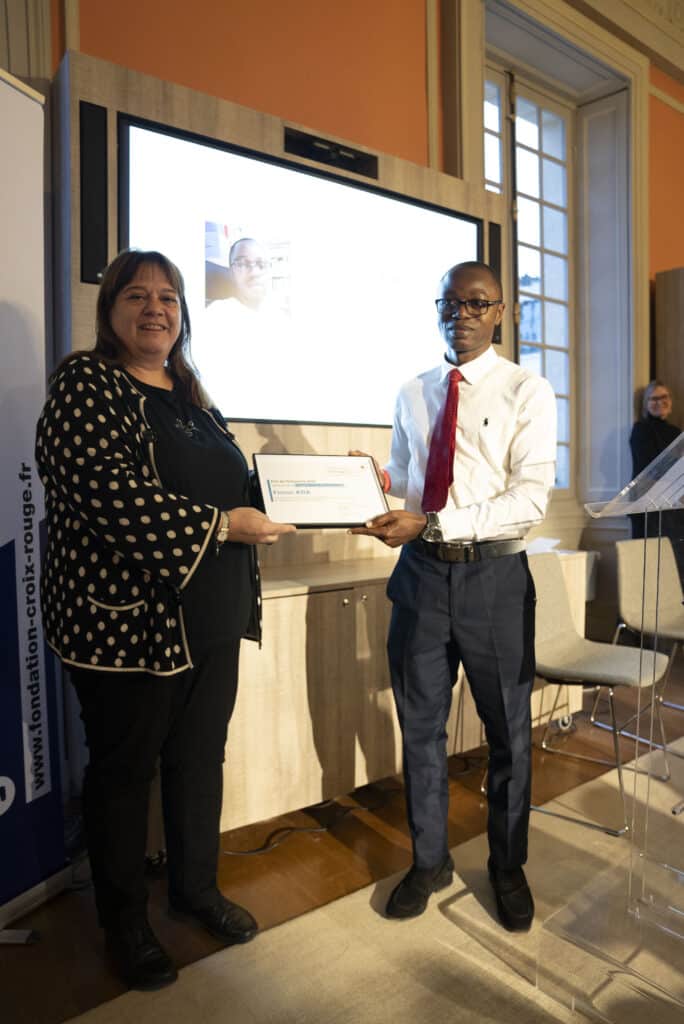
Watch Firmin KRA’s video portrait
Alice DESCLAUX
Honorary Prize
Alice Desclaux is a Medical Doctor and Health Anthropologist, Director of Research at the Institut de recherche pour le développement (IRD). She is also coordinator of the international research group “Réseau Anthropologie des Epidémies Emergentes”, and director of the “Anthropologies & Médecines” collection with Laurent Vidal, published by Editions L’Harmattan.
She is being honoured for her entire career devoted to the anthropology of health, and for her commitment to scientific associations, as a knowledge broker sensitive to humanitarian issues between medical and social science approaches.
The award was presented by Marc-Henry Soulet, Professor of Sociology and Chair of Social Work and Social Policy at the University of Fribourg (Switzerland), and member of the Foundation’s Scientific Council.
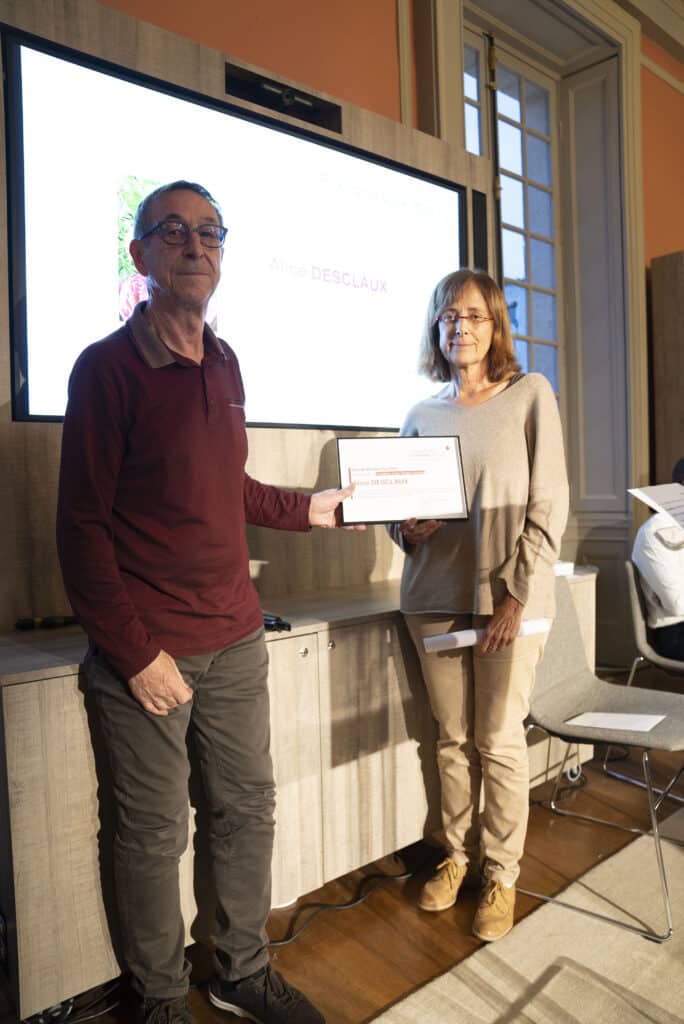
Watch Alice DESCLAUX’s video portrait
About the Foundation’s research awards
The French Red Cross Foundation’s Research Awards are intended to highlight scientific work that has already been completed, or innovative lines of thought devoted to humanitarian and social issues, in both the Global North and the Global South.
Open to all disciplines of the human and social sciences and to all nationalities, they reward scientific excellence and human commitment, promoting scientific knowledge, ethical reflection and social innovation to advance action in the service of the most vulnerable.
